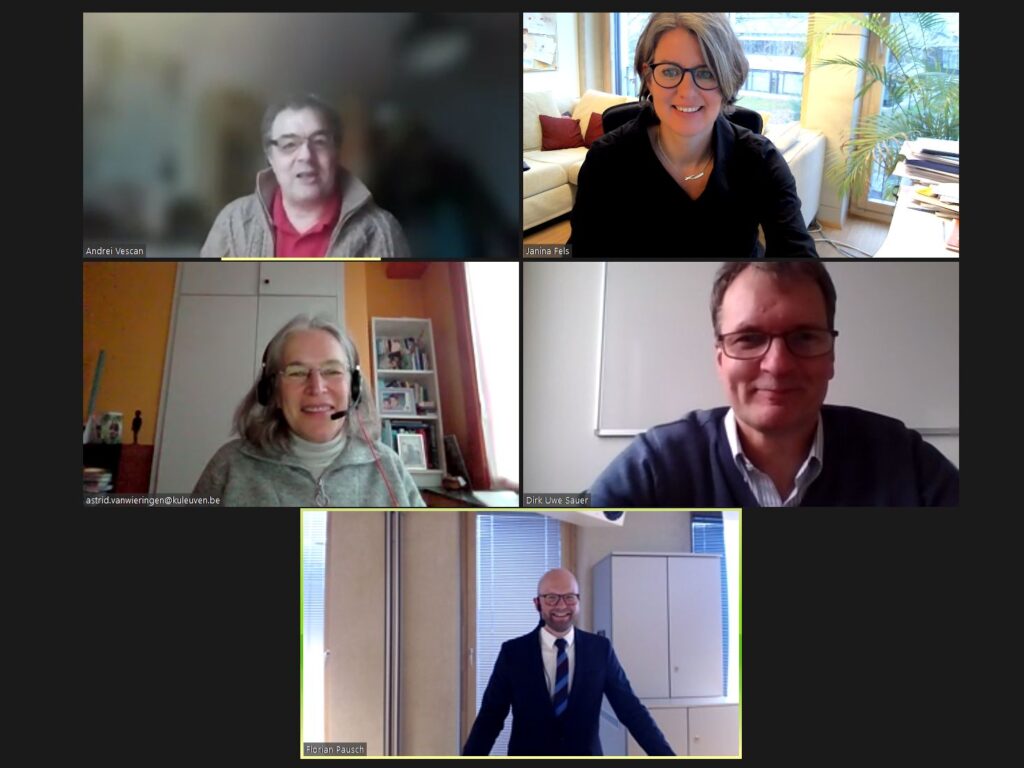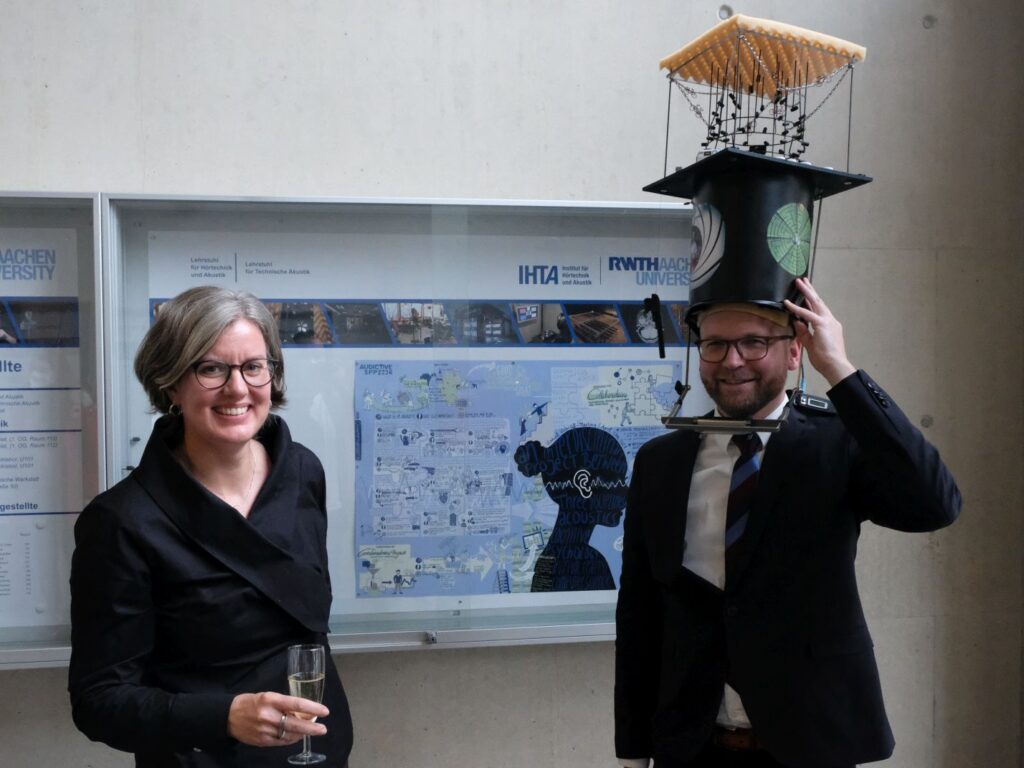Am 26. November 2021 hat Herr Florian Johannes Pausch seine mündliche Promotionsprüfung erfolgreich abgeschlossen.
Herr Pausch promovierte über das Thema: „Spatial audio reproduction for hearing aid research: System design, evaluation and application“
Abstract:
Listening, understanding and communicating are essential skills for social interaction in everyday life. Hearing loss (HL) may have severe consequences on these skills and affect individuals by hindering language development, learning success and participation in social life already at an early age. Depending on the individual predisposition, those affected are likely to withdraw from socialisation processes and sometimes suffer from compromised mental and general health. However, these consequences are not limited to children but also apply to adults and elderly people, especially those who refuse to acknowledge their HL and appropriate treatment, leading to an increased risk of apathy and depression, as well as memory problems and dementia. Assistive listening devices, such as hearing aids (HAs), represent an effective technical intervention tool capable of partially restoring impaired hearing and helping to overcome the aforementioned consequences of HL. Despite using the latest technology, individuals fitted with HAs often complain about poor performance of their devices, particularly in demanding indoor communication settings with unfavourable room acoustics. To some extent, these performance shortcomings can be attributed to limitations of HA algorithms, which are often designed and tested using simplified laboratory scenarios that may differ substantially from complex real-world situations. This thesis contributes to bridging this gap by exploring the advantages and flexibility of virtual acoustic environments (VAEs) reproduced by state-of-the-art spatial audio reproduction methods adapted for HA research. In order to further approach the overarching goal of ecological validity, the system design has been complemented by real-time implementations and room acoustic simulations, allowing to include listener movements via motion tracking and simulate plausible indoor environments, respectively. The systems are comparatively evaluated based on measurements and perceptual experiments with normal-hearing individuals, demonstrating their applicability in experiments involving normal-hearing participants and participants with HL.

Doctoral exam Florian Pausch, Prüfungskommission: Zweitgutachterin Prof. Dr. Astrid van Wieringen (KU Leuven), Prof. Dr. Andrei Vescan, Prof. Dr. Dirk Uwe Sauer, Prof. Dr. Janina Fels

Doktorprüfung Florian Pausch. Prof. Dr.-Ing. Janina Fels und Dipl.-Ing. Florian Pausch. Foto: Mark Müller-Giebeler
Das IHTA gratuliert sehr herzlich!!

